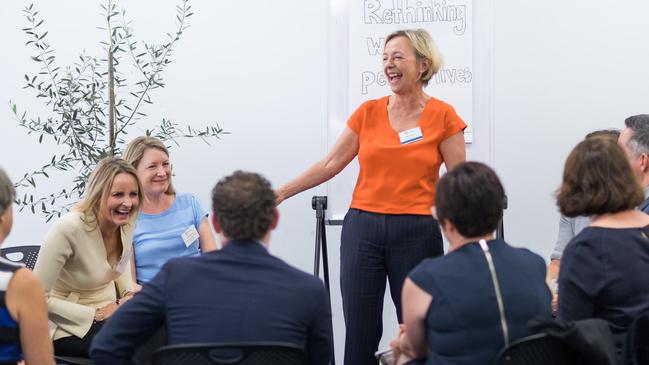‘Benevolent’ bosses face a fresh challenge after COVID
Companies adapted their working arragements to help staff during COVID. But will they keep the faith?

Australian companies made dramatic changes to their working arrangements last year but a new report questions how many of these practices will survive a return to “normal” work after COVID-19 crisis.
Lead author, Marian Baird, of Sydney University, says: “I think that is the critical question. This report shows that we can work differently, but it doesn’t say it will continue.”
She says that if the changes are to stick, business needs to see that the companies that did make changes around remote working, for example, actually benefitted.
“They didn’t lose out by doing that,” says Baird, who is Professor of Gender and Employment Relations.
Her team at the Centre of Excellence in Population Ageing Research carried out lengthy interviews between May and October last year with 32 leaders, managers and officers at 28 organisations.
Their report, An Employers Lens on COVID-19: Adapting to Change in Australian Workplaces, is the first detailed analysis of how employers responded to the initial “shock phase” of the pandemic. The report found the period changed the way managers exercised control over their staff.
Baird says one of the surprises in the research was the sense of commitment employers felt to the wider community. There was a genuine sense of “we have to do this for the country, for our community, and for our own employees. I’ve never seen anything like that before”. For example, a professional services partner said: “We’re very focused on being able to honestly put our hand on our heart at the end of this and say we tried really hard to keep everybody safe. And so our main mantra throughout has been: save lives and save jobs.”
A government department section manager said: “We also understand that I’m not going to hear from you between 9am and midday because you’re busy doing lessons.”
Some employers reported that older people defied their expectations in the ease with which they adjusted to the large-scale movement of all of their functions online. But 12 of the 38 employers surveyed said they held greater concerns for younger than older employees, for example because of their less suitable living and more precarious work arrangements.
Most employers saw no broad differences in how men and women, or older and younger employees, responded to the work-from-home transition.
But health, care responsibilities, seniority and personality played a role in their ability to cope with the change.
Baird says much of the “benevolent” behaviour by companies was particular to the pandemic and it remains to be seen whether these behaviours continue into the post-COVID workplace environment.
Despite the promise of a “working revolution”, she says we’re more likely to see a “partial revolution”, which will depend on negotiations between employers and employees as they transition back into normal working arrangements.
Says Baird: “I don’t think that can be done quite as rapidly as the sort of emergency response. And that’s, if you like, where the rubber hits the road. People on both sides were very willing to give, but if it’s continued, how do we manage that? This is where the actual tensions will come through.” Even so, all employers surveyed were open to implementing some permanent changes in the way their employees worked, such as flexible work options and the use of online technologies. “If there are more productive and better ways that people can work, we really want to explore that,” a professional services partner said.
While some predicted that the changes to their operations would remain in place after COVID-19, others were unequivocal that they did not want to go back to the way things were. They wanted “a better working world”, which they described as a “new normal”.
The most commonly forecast permanent change was a combination of working from the office and at home. Some employers were open to the idea that certain employees would never return to the office.
But some of those who were transitioning employees back to the office said they faced a balancing act because of employee resistance to returning, and problems with team cohesion and information sharing.



To join the conversation, please log in. Don't have an account? Register
Join the conversation, you are commenting as Logout